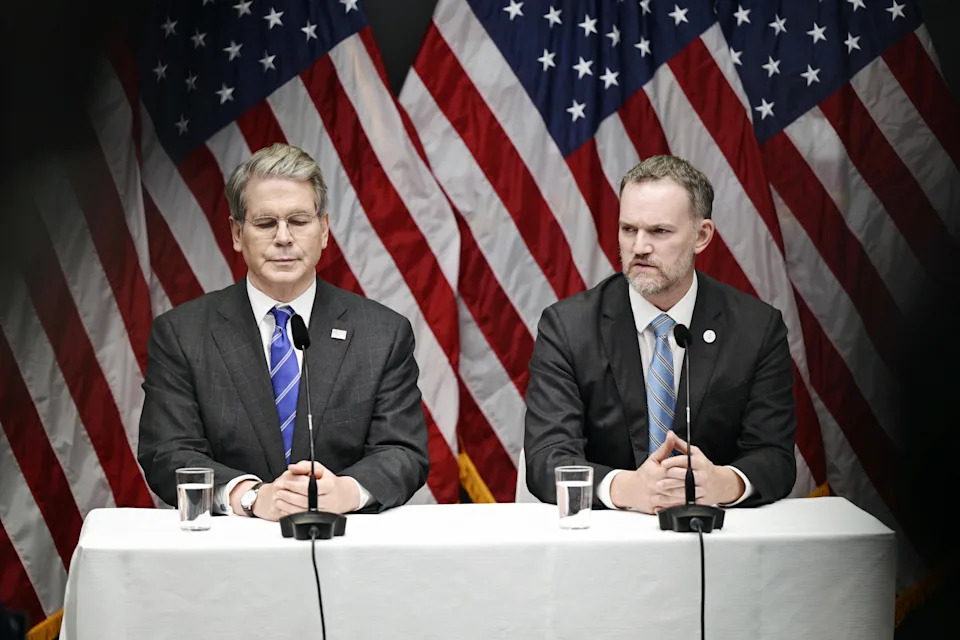
No tariff pause announced after US-China talks, with Trump set to make the 'final call'
Key Points
- US and Chinese negotiators concluded two days of trade talks in Stockholm, Sweden, without an immediate announcement on further tariff delays, leaving markets anxious about potential duty increases set for August 12.
- Treasury Secretary Scott Bessent described the talks as "very constructive," with a possible 90-day tariff pause still under consideration, pending President Trump's final decision.
- Both sides discussed a range of issues, including semiconductors, rare earth minerals, and Chinese export controls, but did not plan a face-to-face meeting between Trump and Xi Jinping.
- Trump's team emphasized that tariff rates could revert to higher levels seen earlier this year if no agreement is reached, with the president holding the ultimate authority to decide.
- This meeting marks the third in recent months between US and Chinese trade teams, building on previous discussions in Geneva and London, with ongoing communication expected.
Summary
US and Chinese trade negotiators concluded two days of talks in Stockholm, Sweden, without a definitive announcement on extending a tariff pause, raising concerns as higher duties loom on August 12. Treasury Secretary Scott Bessent called the discussions "very constructive," hinting at a potential 90-day delay, though President Trump will make the final call. Topics ranged from semiconductors, including Nvidia's AI chip exports to China, to rare earth minerals and Russian oil consumption, but no plans for a Trump-Xi meeting were set. Trump's team warned that tariffs could revert to triple-digit levels seen earlier this year if no deal is reached. This third round of talks in recent months builds on prior meetings in Geneva and London, with both sides committing to ongoing dialogue. Meanwhile, Trump's broader trade agenda includes a new EU tariff pact and negotiations with other nations like India and Canada before a self-imposed deadline. Markets remain on edge, hopeful for a delay to avoid economic disruption, as analysts suggest a pause could stabilize investor sentiment. The outcome of these talks, alongside Trump's decisions, will significantly impact global trade dynamics and economic forecasts in the coming weeks.
yahoo
July 30, 2025
Stocks


